Human Anti-IDH1 Antibody Product Attributes
Species: Human
Tested Applications: Flow Cytometry, Immunofluorescence, Western Blot, Immunohistochemistry (IHC).
Application Notes: Flow Cytometry (0.5-1ug of antibody/million cells in 0.1ml), Immunofluorescence (0.5-1ug of antibody/ml), Western Blot (0.5-1ug of antibody/ml), Immunohistochemistry (IHC) (Formalin-fixed) (0.5-1ug of antibody/ml for 30 minutes at RT)
Clonality: Monoclonal
Anti-IDH1 Antibody Clone: IDH1/1152
Clone IDH1/1152 Host and Isotype: Mouse IgG1 kappa
Anti-Human IDH1 Positive Control Sample: HepG2, HeLa, HT29 or MCF7 cells. Breast, Colon or Prostate Carcinoma.
Cellular Localization of Antibody Cytoplasmic & Nuclear
Buffer and Stabilizer: 1mM PBS with 0.05% BSA & 0.05% azide.
Antibody Concentration: 200ug/ml
Antibody Purification Method:Protein A/G Purified
Immunogen: Recombinant fragment (119 Amino acid residues around aa 280-420) of human IDH1 protein
Storage Conditions: Store at 2 to 8° C (refrigerate). Stable for 24 months when properly stored.
IDH1 Previously Observed Antibody Staining Patterns
Observed Subcellular, Organelle Specific Staining Data:
Anti-idh1 antibody staining is expected to be primarily localized to the cytosol and nuclear bodies. There is variability in either the signal strength or the localization of signal in nuclear bodies from cell to cell.Observed Antibody Staining Data By Tissue Type:
Variations in IDH1 antibody staining intensity in immunohistochemistry on tissue sections are present across different anatomical locations. An intense signal was observed in cells in the seminiferous ducts in testis, chondrocytes in mesenchymal tissue, glandular cells in the adrenal gland, epididymis, gallbladder, prostate and seminal vesicle, Leydig cells in the testis and urothelial cells in the urinary bladder. More moderate antibody staining intensity was present in cells in the seminiferous ducts in testis, chondrocytes in mesenchymal tissue, glandular cells in the adrenal gland, epididymis, gallbladder, prostate and seminal vesicle, Leydig cells in the testis and urothelial cells in the urinary bladder. Low, but measureable presence of IDH1 could be seen inadipocytes in breast and mesenchymal tissue, glandular cells in the cervix, uterine, colon, fallopian tube and salivary gland, macrophages in lung, myoepithelial cells in the breast, ovarian stroma cells in the ovary, pneumocytes in lung, respiratory epithelial cells in the bronchus and nasopharynx and squamous epithelial cells in the esophagus. We were unable to detect IDH1 in other tissues. Disease states, inflammation, and other physiological changes can have a substantial impact on antibody staining patterns. These measurements were all taken in tissues deemed normal or from patients without known disease.Observed Antibody Staining Data By Tissue Disease Status:
Tissues from cancer patients, for instance, have their own distinct pattern of IDH1 expression as measured by anti-IDH1 antibody immunohistochemical staining. The average level of expression by tumor is summarized in the table below. The variability row represents patient to patient variability in IHC staining.| Sample Type | breast cancer | carcinoid | cervical cancer | colorectal cancer | endometrial cancer | glioma | head and neck cancer | liver cancer | lung cancer | lymphoma | melanoma | ovarian cancer | pancreatic cancer | prostate cancer | renal cancer | skin cancer | stomach cancer | testicular cancer | thyroid cancer | urothelial cancer |
|---|---|---|---|---|---|---|---|---|---|---|---|---|---|---|---|---|---|---|---|---|
| Signal Intensity | - | ++ | - | - | + | + | - | - | - | - | - | + | + | +++ | - | - | + | - | - | - |
| IDH1 Variability | ++ | ++ | + | ++ | +++ | ++ | ++ | ++ | ++ | + | + | +++ | ++ | ++ | + | + | ++ | ++ | + | ++ |
Limitations and Warranty
enQuire Bio's IDH1 Anti-Human Monoclonal is available for Research Use Only. This antibody is guaranteed to work for a period of two years when properly stored.
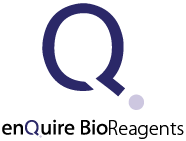
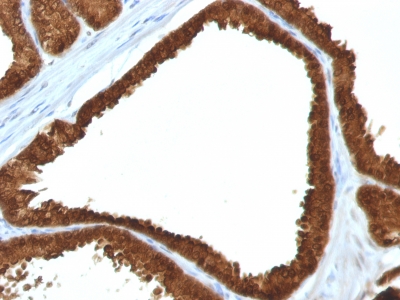


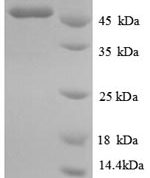
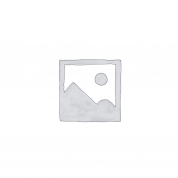
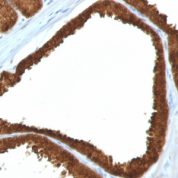
There are no reviews yet.